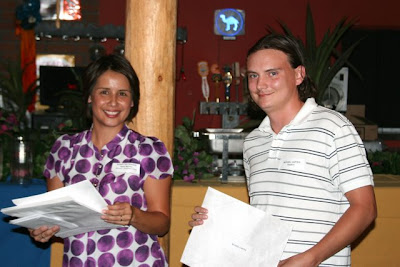This information was provided by the Native American Rights Fund. Visit their website for more information. http://www.narf.org/
New Supreme Court Term May Prove to be Another Difficult Period for Indian Country
WASHINGTON D.C.-The U.S. Supreme Court held its opening conference on September 29, 2008 and, as expected, granted review in two Indian law cases–United States v. Navajo Nation and State of Hawaii v. Office of Hawaiian Affairs–both of which involve lower court decisions favorable to Indian country. First, in United States v. Navajo Nation, the Court will review a decision by the U.S. Court of Appeals for the Federal Circuit upholding the United States’ trust responsibility to the Navajo Nation. This case is part of the on-going litigation between the Navajo Nation and the United States involving disputes surrounding the negotiation of royalty rate adjustments for coal leases entered into between the Navajo Nation and the Peabody Coal Company.
Second, in State of Hawaii v. Office of Hawaiian Affairs, the Court will review a decision by the Supreme Court of Hawaii which held that the State of Hawaii should be enjoined from selling or transferring “ceded lands” held in trust until the claims of the native Hawaiians to the ceded lands have been resolved. The Supreme Court of Hawaii based its decision, in principal part, on the Apology Resolution adopted by Congress in 1993 which gives “rise to the State’s fiduciary duty to preserve the corpus of the public lands trust, specifically, the ceded lands, until such time as the unrelinquished claims of the native Hawaiians has been resolved.” In 2000, while in private practice, Chief Justice Roberts represented the State of Hawaii in Rice v. Cayetano, a case involving the status of native Hawaiians in which the Court held against Native interests. No doubt, the questions presented in this case are of keen interest to the Chief Justice.
At present, the Tribal Supreme Court Project remains extremely busy as it prepares for oral argument on November 3, 2008 in Carcieri v. Kempthorne (challenge to authority of the Secretary to take land in trust under section 5 of the Indian Reorganization Act). The Project also is continuing its efforts to coordinate resources and develop strategy in support of a petition for cert involving the free exercise of Native religions under the protection of the Religious Freedom Restoration Act in Navajo Nation v. United States Forest Services (permit for ski resort to use recycled sewage waste-water to manufacture snow on the San Francisco Peaks — a sacred-site for many American Indian Tribes). As always, we are carefully monitoring cases of interest as they move through the lower courts.
Copies of briefs and other materials for each of the cases listed in the Tribal Supreme Court Project Update are available on the NARF website at http://www.narf.org/sct/index.html.
The Tribal Supreme Court Project is part of the Tribal Sovereignty Protection Initiative and is staffed by the National Congress of American Indians (NCAI) and the Native American Rights Fund (NARF). The Project was formed in 2001 in response to a series of U.S. Supreme Court cases that negatively affected tribal sovereignty. The purpose of the Project is to promote greater coordination and to improve strategy on litigation that may affect the rights of all Indian tribes.
We encourage Indian tribes and their attorneys to contact the Project in our effort to coordinate resources, develop strategy and prepare briefs, especially at the time of the petition for a writ of certiorari, prior to the Supreme Court accepting a case for review.





